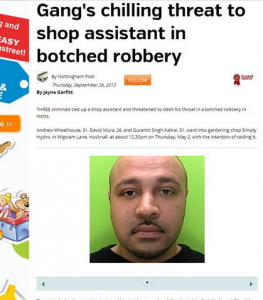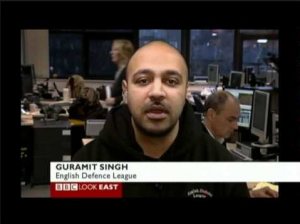[Go to Part 1]
2. It legitimises and strengthens mainstream politics
Unite Against Fascism and Hope Not Hate are constantly putting mainstream politicians on their platforms, leafleting against the BNP alongside mainstream politicians and generally giving the impression that these crooks are an anti-fascist alternative to the far right. Given that respect for the mainstream parties is at an all time low this is extremely unwise. It enables the likes of the BNP to portray themselves as political outsiders, somehow untainted by the corruption of seeking political power, and as underdogs who are nonetheless a credible threat. In reality, of course, the far right is dogged by corruption and nepotism, something that is central to the BNP’s current internal ructions, but this is a point that is much harder to make when your rally features the local Labour MP and you have Gordon Brown endorsing your campaign.
But of course, it is not just for tactical reasons that anti-fascists should not let politicians jump on the bandwagon. The policies of the main parties on policing, immigration control and suppressing working class communities are often authoritarian and racist. It was mainstream parties not the far-right who brought us neoliberalism, anti-union legislation, detention of asylum seekers, the invasions of Afghanistan and Iraq and are now forcing the cuts on us.
In many cases, it is precisely the policies of the mainstream parties which have created the conditions allowing fascism to flourish. Consider for instance the chronic underfunding of council housing over the last 30 years. Before Thatcher came to power, there were never fewer than 75,000 council dwellings built in any year. In 1999, only 84 were built. Combined with “right-to-buy,” the impact on the availability of affordable housing has been inevitable. The upshot of this is that only the most needy are now able to get access to council housing. If you are, for example, a single working-class male you’re likely to find yourself at the bottom of the list. This inevitably fuels resentment and is likely one of the key drivers in the recent growth of the BNP, particularly in areas like Barking and Dagenham.
Even if they were an effective defence against a rising far-right, neither the Conservatives nor Labour have hesitated to adopt hardline policies in order to pander to voters who might otherwise have been tempted to vote for fascists. See, for example, Labour MP Margaret Hodge’s inflammation of fears about migrants taking social housing or David Cameron’s vilification of Muslims on the day of an EDL march. In the absence of any credible party of their own, the only way that the far right’s politics can enter the mainstream is through such an appropriation by the big three, in their attempt to win votes from the ‘white working class’.
By allowing neoliberal politicians of any stripe to ride along for free on their coat-tails, anti-fascists are undoing their own work towards a society free of authoritarianism and social control. There is no point in taking away power from outright fascists only to hand it to neoliberals who are much more capable at repressing the working classes. Our enemy’s enemy is not necessarily our friend.
3. It legitimises and strengthens religious and community leaders
The other kind of person that gets an unwarranted boost by liberal anti-fascist campaigning is the self- or state-appointed community leader. These are people who, either propped up by state patronage or their hierarchical position within community organisations, assume for themselves the role of speaking on behalf of their own community, ethnic or religious group. The promotion of religious leaders is especially problematic, as they bring with them their moral ideas which can often be conservative, homophobic and sexist. Indeed, militant anti-fascists have protested against the fascism of some extreme religious groups, such as an Islamist conference at the East London Mosque.
However, hierarchical anti-fascist organisations like the Socialist Workers Party front group, Unite Against Fascism, lap up the opportunity to invite community leaders onto their platforms, in an ill-thought out attempt to get the support of the communities themselves. Following the muddled logic of my enemy’s enemy is my friend, this tactic can result in people with extremely conservative and offensive political ideas to speak on anti-fascist platforms. For example, UAF invited the anti-gay leader of the Muslim Council of Britain, Sir Iqbal Sacranie, to speak at an anti-BNP event, a decision that was defeated by pressure from LGBT campaigners.
The promotion of certain Muslim community leaders is especially problematic, given the heavy influence of the state in promoting certain groups and individuals within the Muslim community. Most notoriously, a large amount of funding was given to selected community leaders from the Prevent anti-terrorism pot “to support work that will build the capacity of individuals, organisations and communities to take the lead on tackling violent extremist influences”. Inevitably, one effect of this funding has been to dampen criticism of the government and the ‘War on Terror’, something that might easily be mistaken as “violent extremism” by the spooks and cops who give out the money. Community leaders whose funding is dependent on not rocking the boat will inevitably be drawn towards public support for liberal anti-fascism and more policing rather than the community self-defence that ordinary community members tend to support.
Given the current victimisation of certain communities and groups by the far right, it is extremely important to have all sections of the community involved in anti-fascism. However, militant anti-fascists prefer to work on the grassroots level, rather than with community leaders who are often either self-appointed and unrepresentative or state patsies.
[Go to Part 3]

